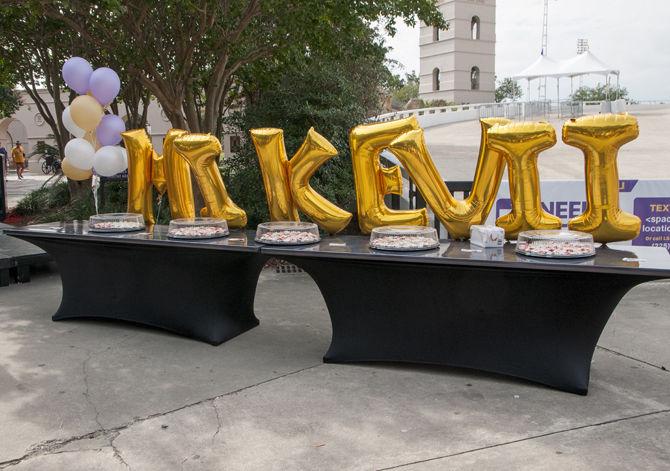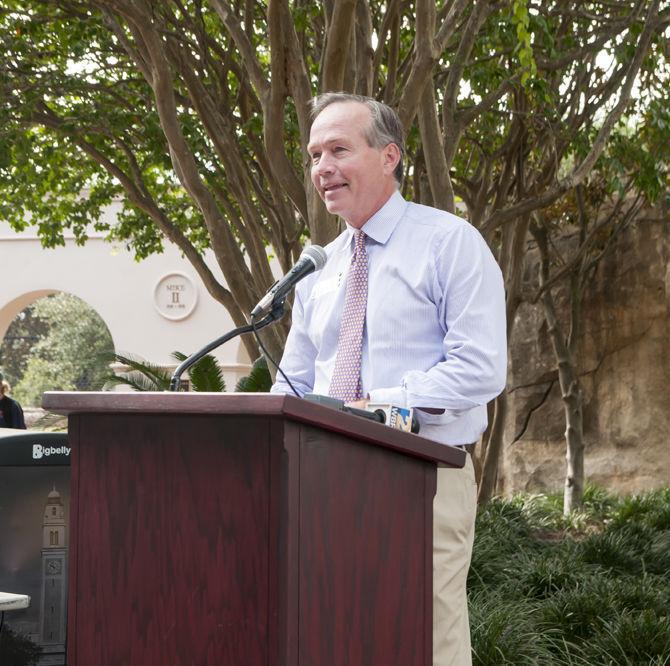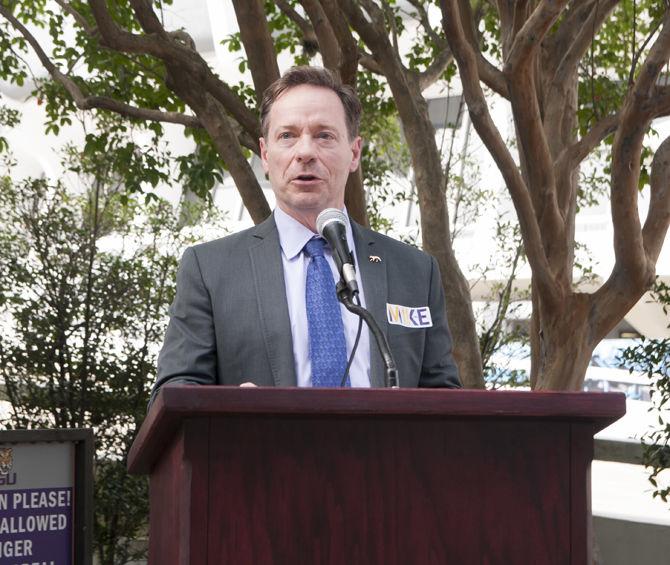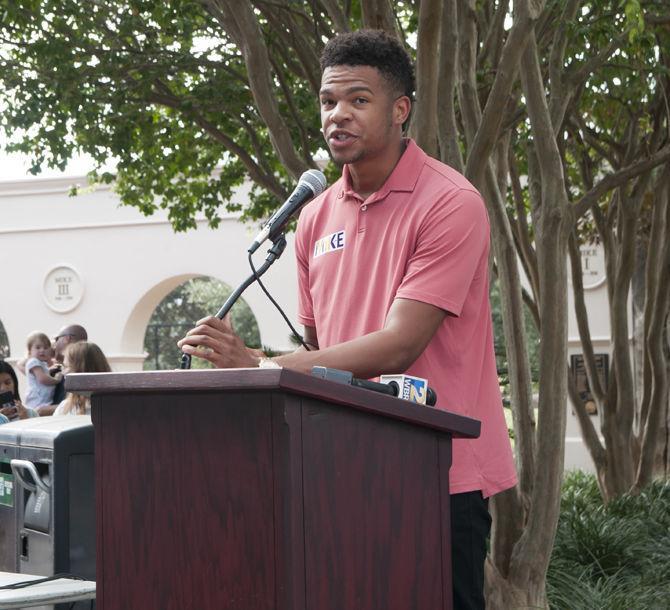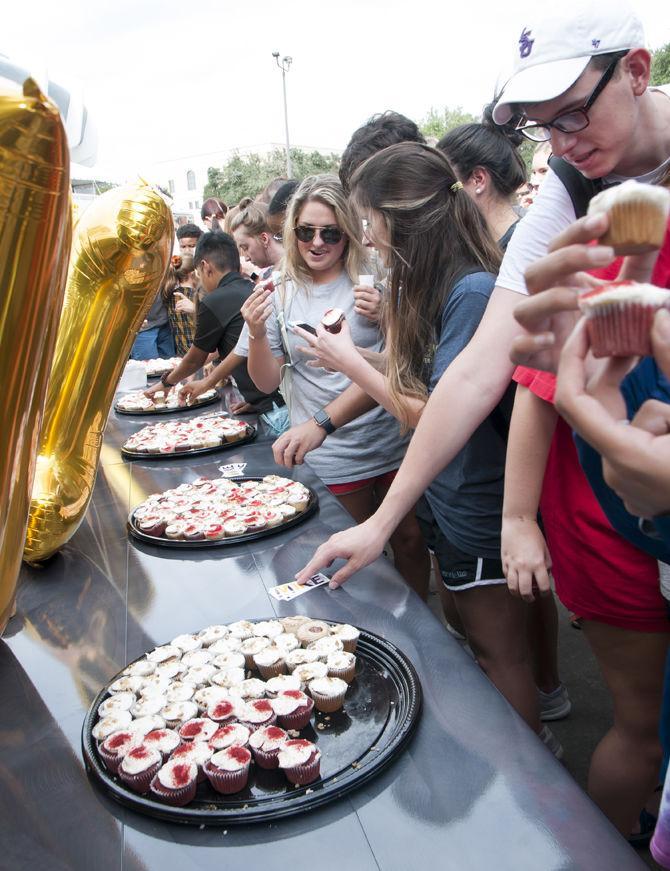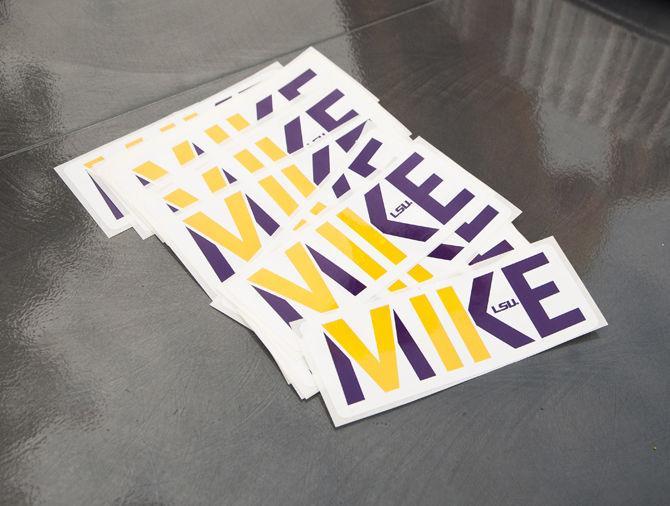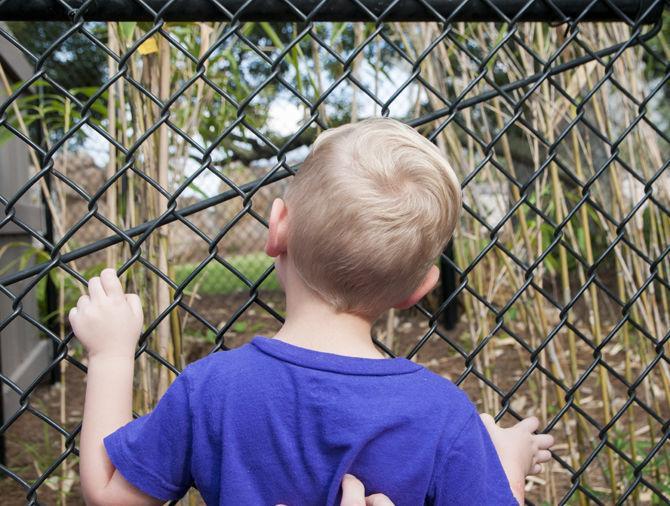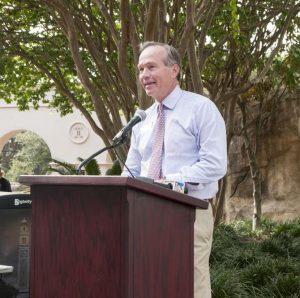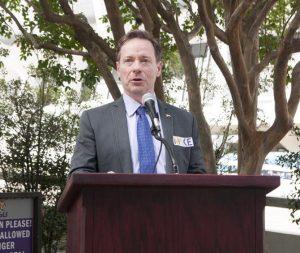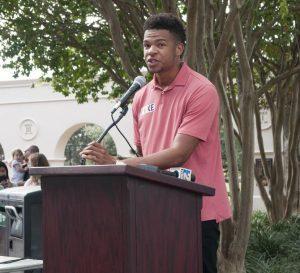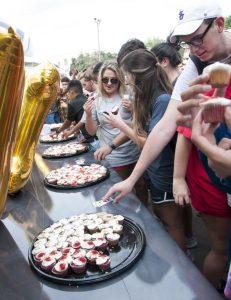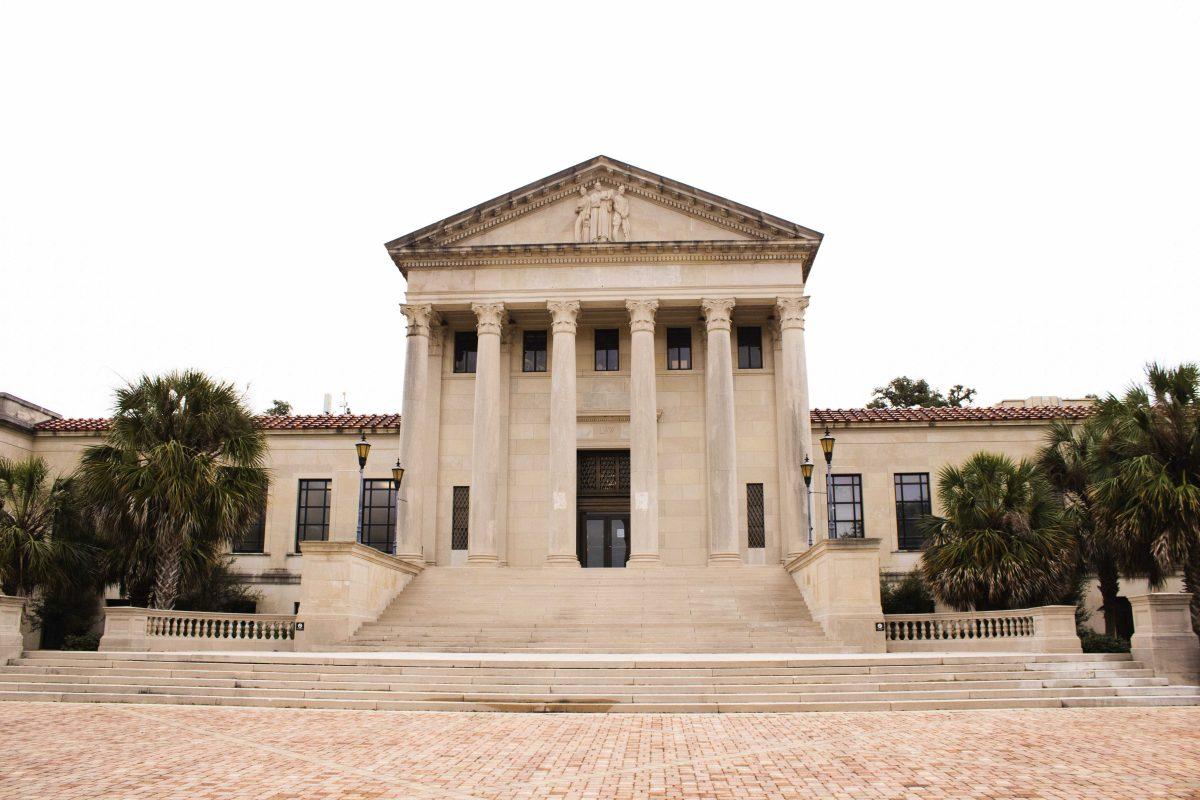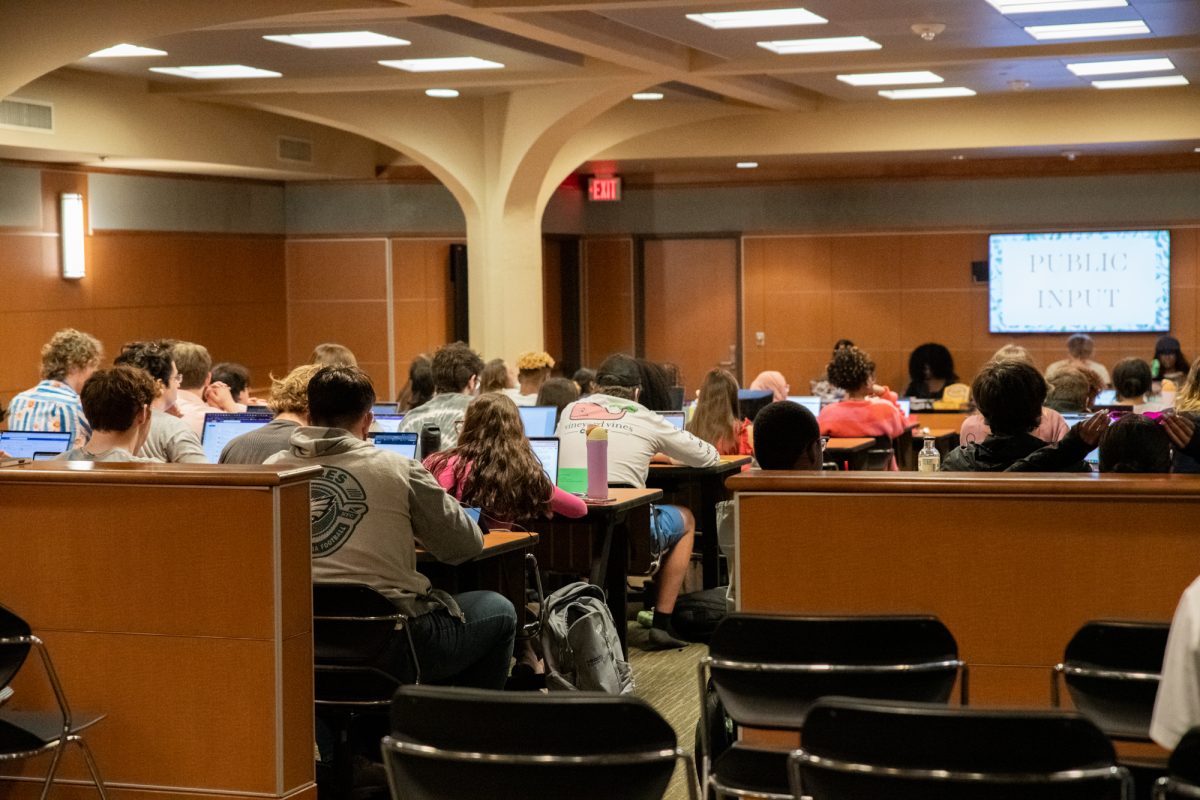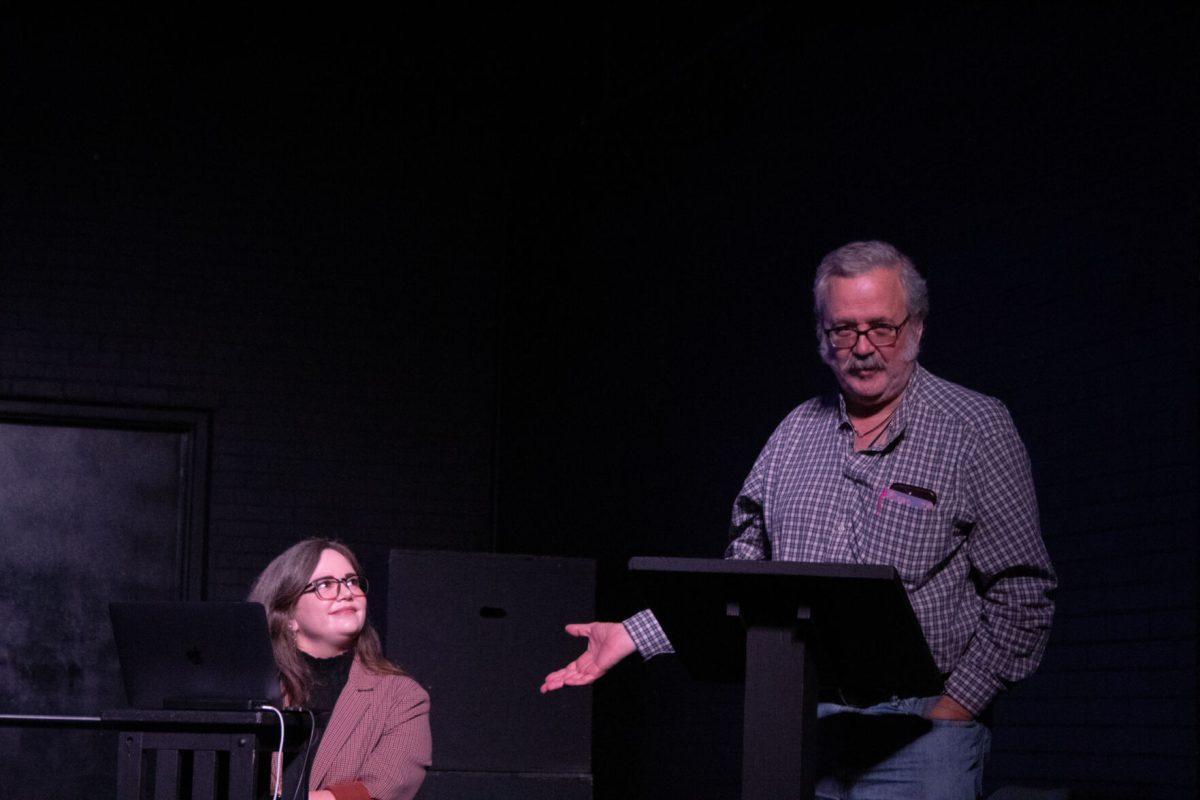Hundreds of students and University supporters gathered to celebrate Mike VII’s first birthday at an event outside the tiger habitat Sept. 13. Event speakers highlighted his importance as an educational tool to bring awareness to the endangered species.
LSU President F. King Alexander opened the celebration, welcoming Mike VII to campus and wishing him a happy first birthday.
“While we wish every tiger could live in the wild, this species is endangered around the world,” Alexander said in his speech. “There are less than 3,900 tigers in the wild.”
Alexander encouraged people to be on the lookout for ways they can make a difference to the endangered species ahead of the Auburn game.
Dean of the LSU School of Veterinary Medicine Joel D. Baines spoke about the lack of wild tigers, and the importance of the University’s mission.
“There are more tigers in the United States than in tiger country,” Baines said. “[They] could easily become extinct in the next 20 years. LSU will not let that happen.”
Baines highlighted the intellectual capability of the tiger and how much he has grown since joining the University community. Mike VII has gained 30 pounds since his arrival, “a pound for each day,” he said.
Mike’s birthday event was organized by LSU Student Government after the initial welcome event Aug. 22 was cancelled due to inclement weather. The SG director of programming Stewart Lockett encouraged new University students to get involved on campus.
“This isn’t only Mike’s first year, it’s yours as well,” Lockett said. “Go out, get involved and make a difference.”
Lockett led the crowd in singing “Happy Birthday” to the one-year-old tiger, before letting attendees get their own birthday cupcake and commemorative Mike VII sticker.
After the event, Alexander spoke with reporters and stressed the importance of the U.S. Tiger University Consortium. The University, along with Clemson University, Auburn University and the University of Missouri, formed the group with the former chairman of the world bank and others who “have a mission to repopulate tigers around the world,” Alexander said.
“Their lifespan in the wild is only seven years because of poaching and black market issues, and here they live anywhere from 12-17 years,” Alexander said to The Daily Reveille. “Mike is more than just a University mascot. [He] is an education opportunity for us to get people engaged with saving tigers around the world.”
Alexander said having a live tiger mascot on campus is a high-profile opportunity for the University to make a real impact on the species over the next ten to fifteen years. He said one reason the live mascots can live so much longer at the University than in the wild is the efforts of the Vet School.
“Only about half of the states have a vet school, especially a large animal vet school,” Alexander said. “We’re one of the few that has a big cat operation and [Mike will] live longer because he’s well taken care of.”
Alexander said the University is working on getting kiosks and placards around Mike’s habitat to highlight what role they can play and what organizations they can join to help save tigers around the world.
“Thousands of people come to see him on Saturday football games,” he said. “If we can get 50 or 60 of them to join these organizations, that could make a big difference.”
Alexander said these resources, which will be organized in a joint effort between the athletic department, the Tiger Athletic Foundation and the Vet School, will ideally be up before the University plays Auburn on Oct. 14.
“We want to make a big deal since we’re both tigers,” Alexander said. “It’s about getting this information out and giving people the opportunity to learn which is what our universities are all about.”


